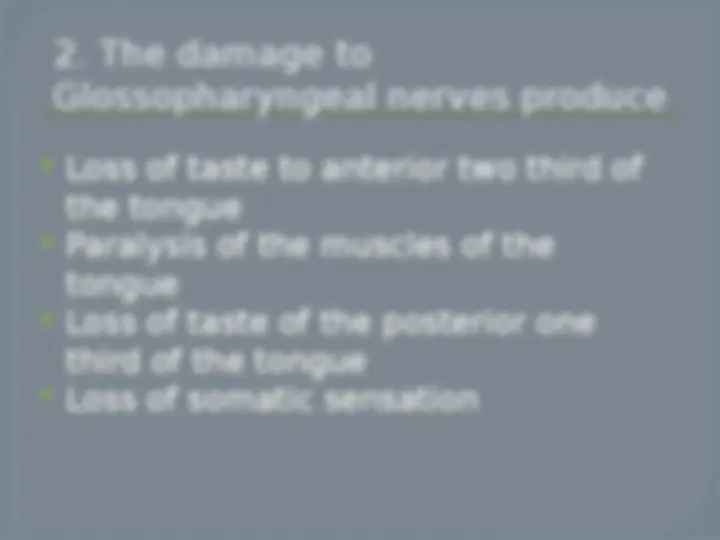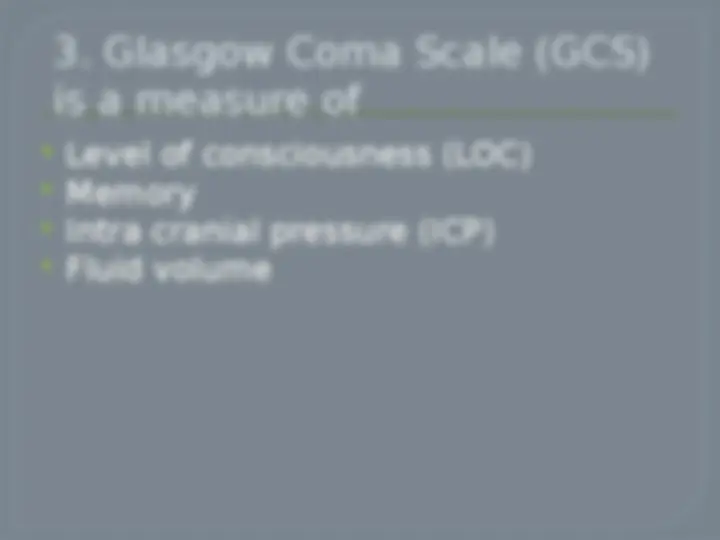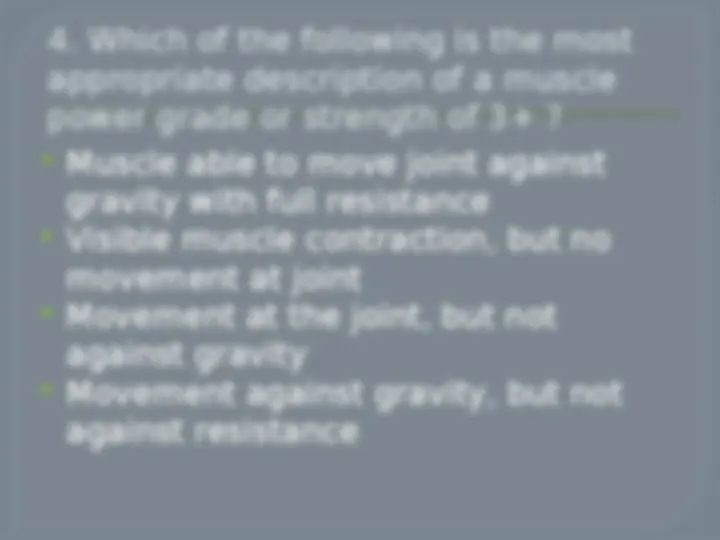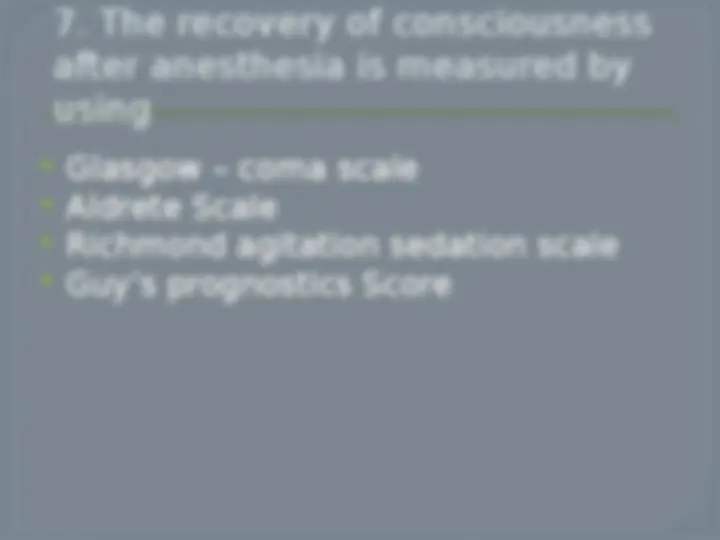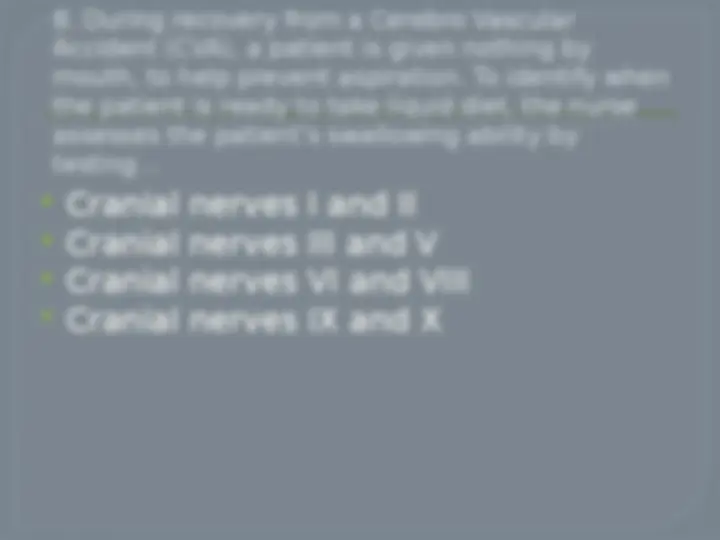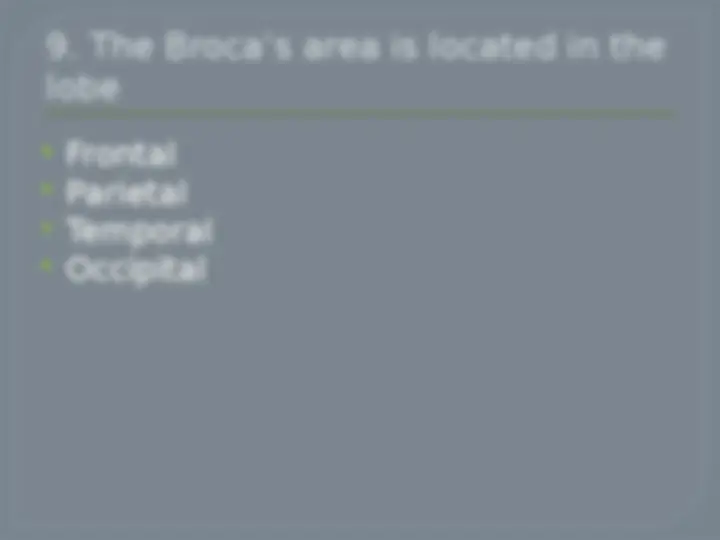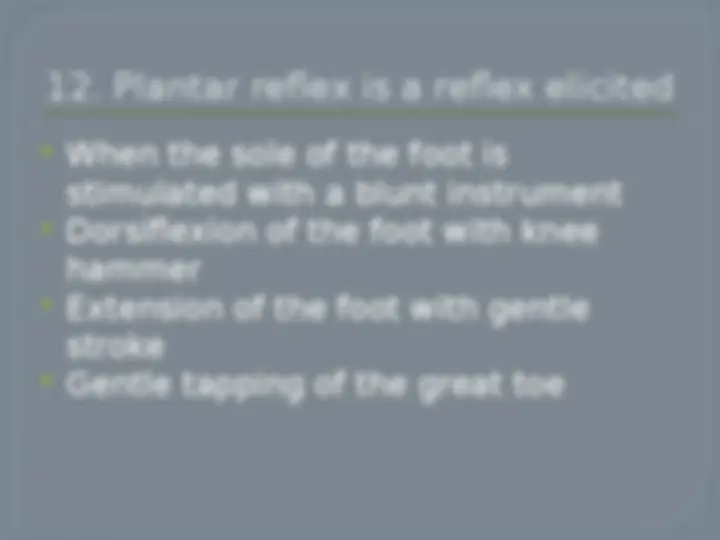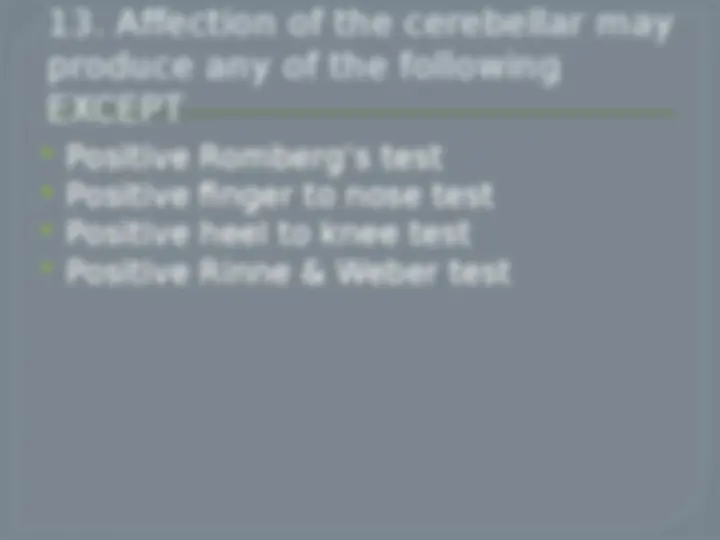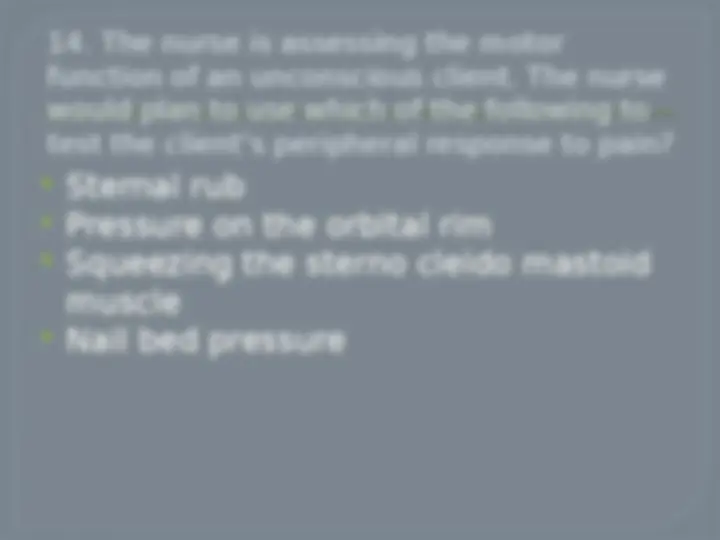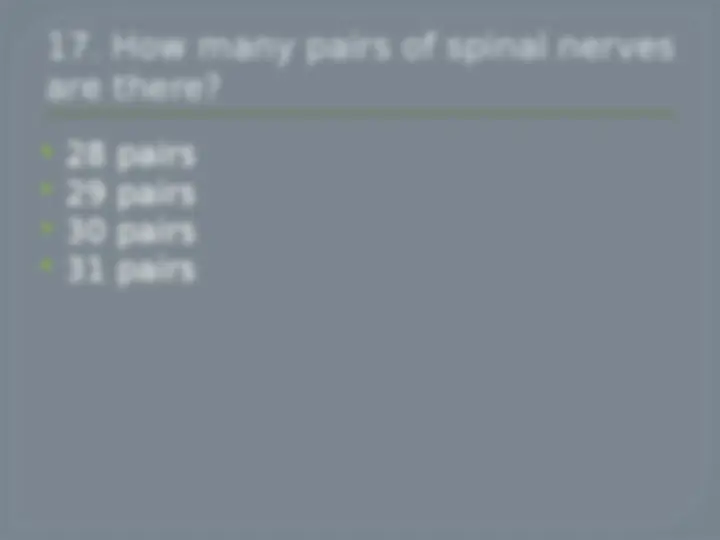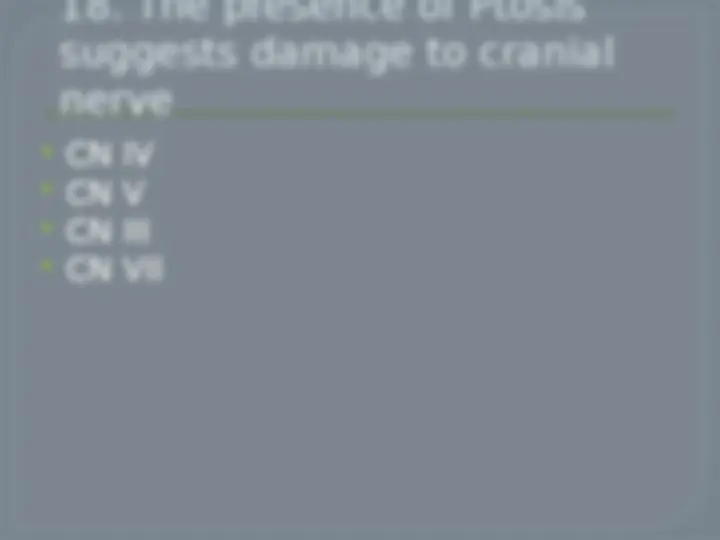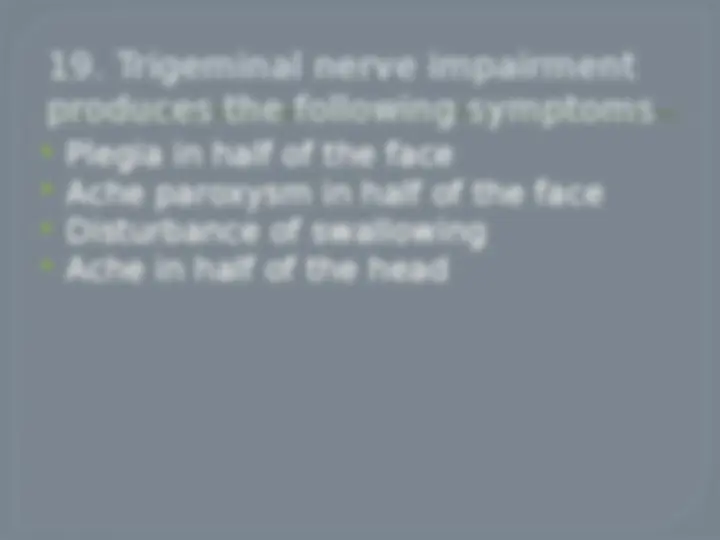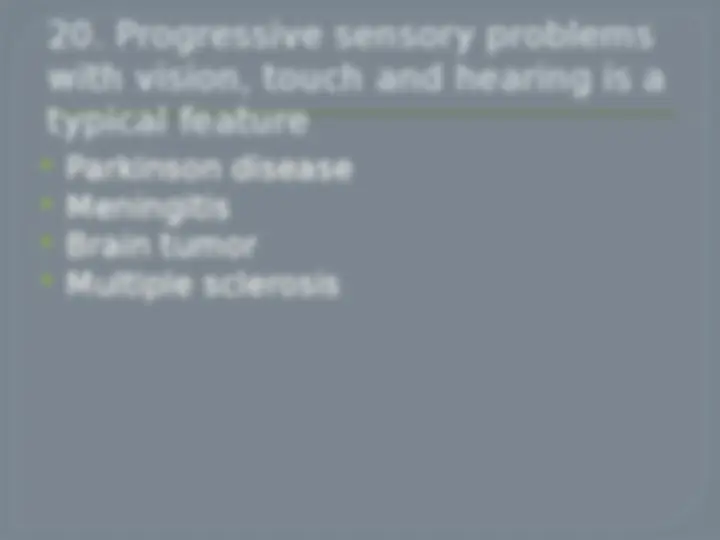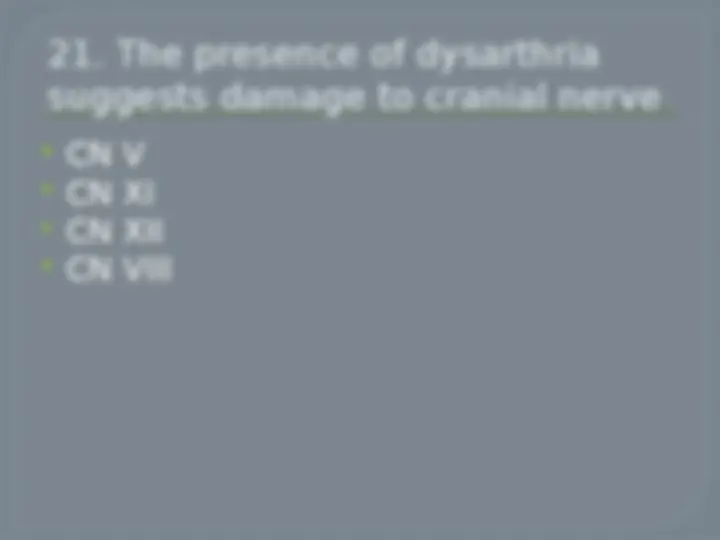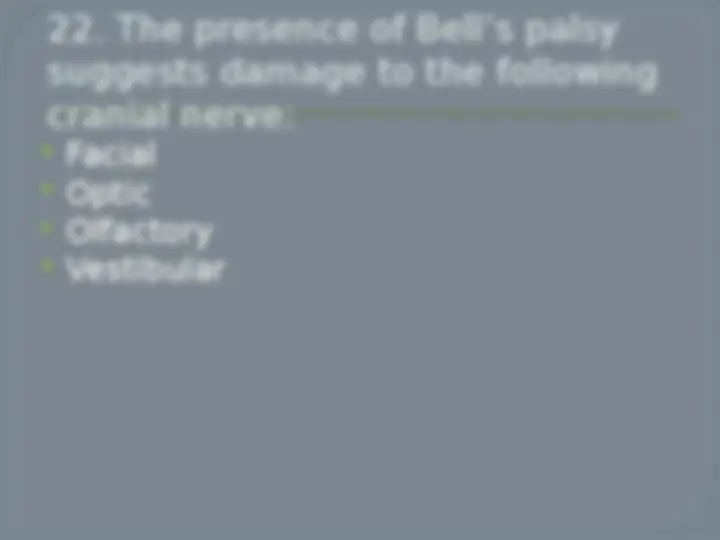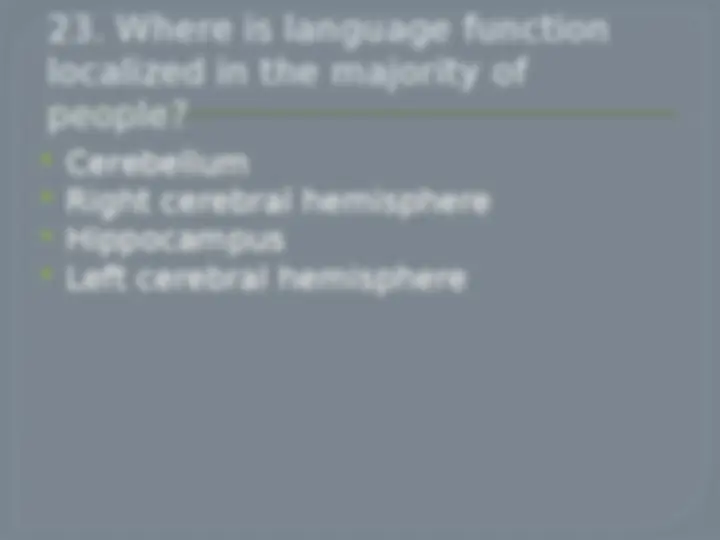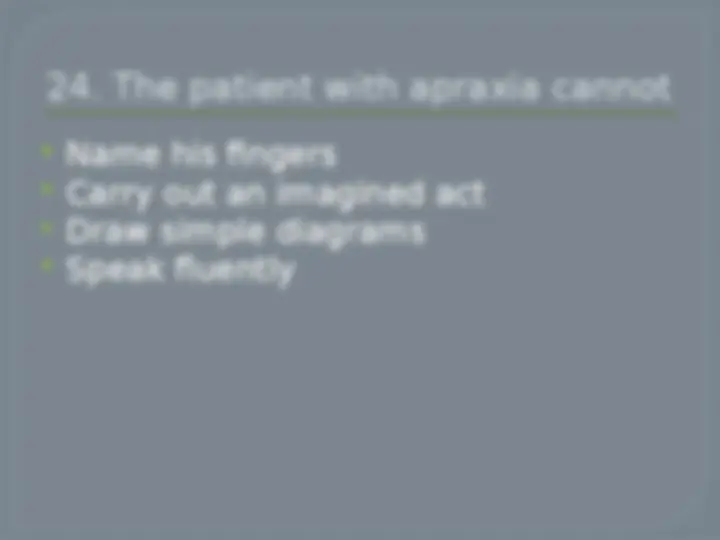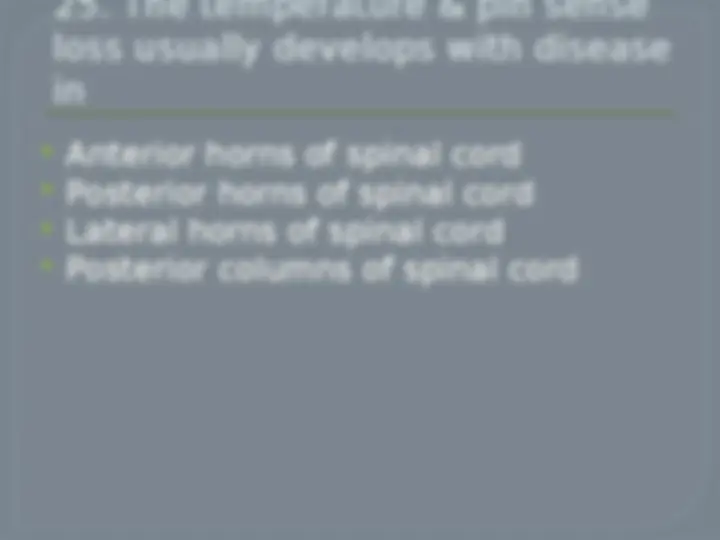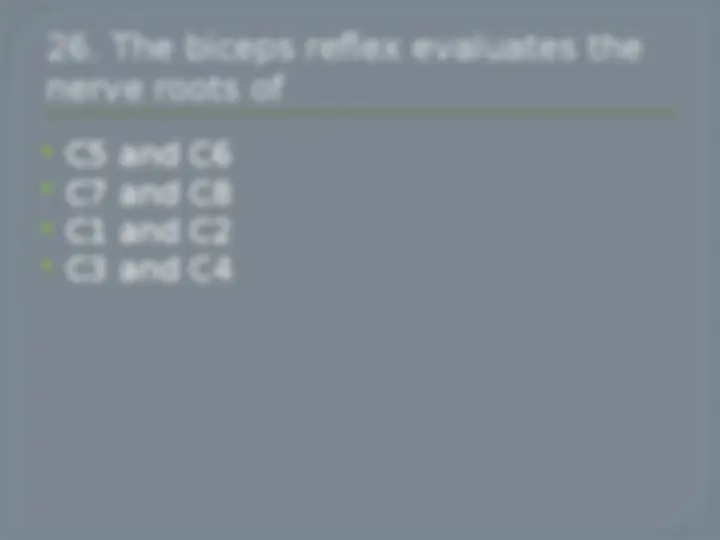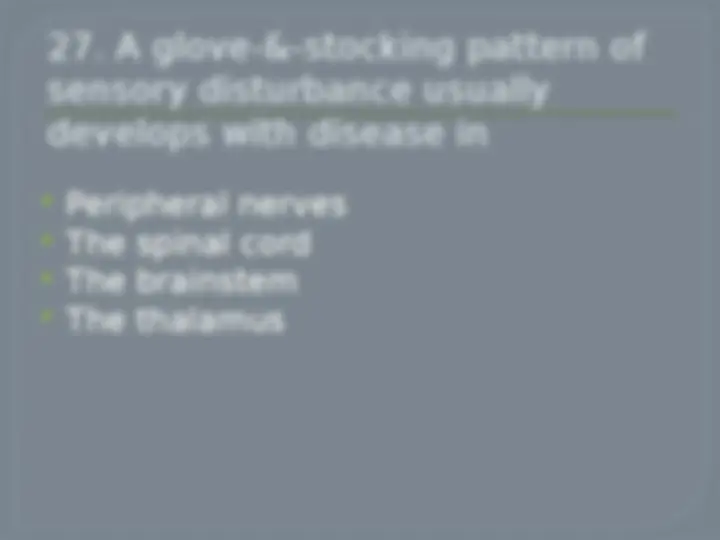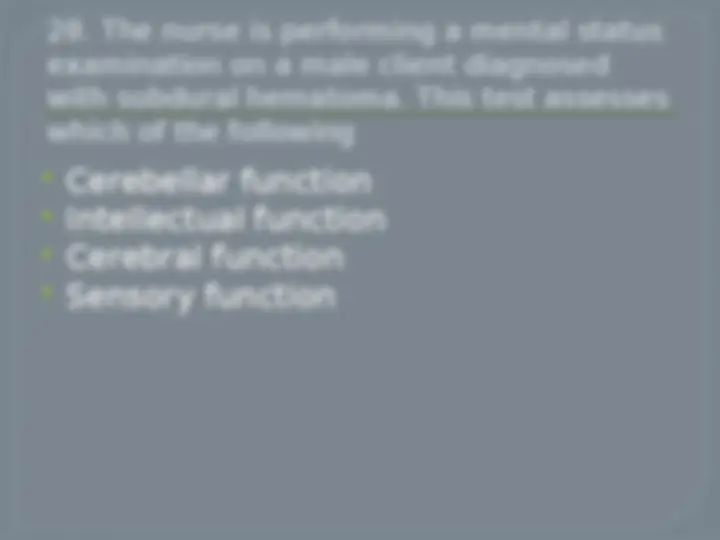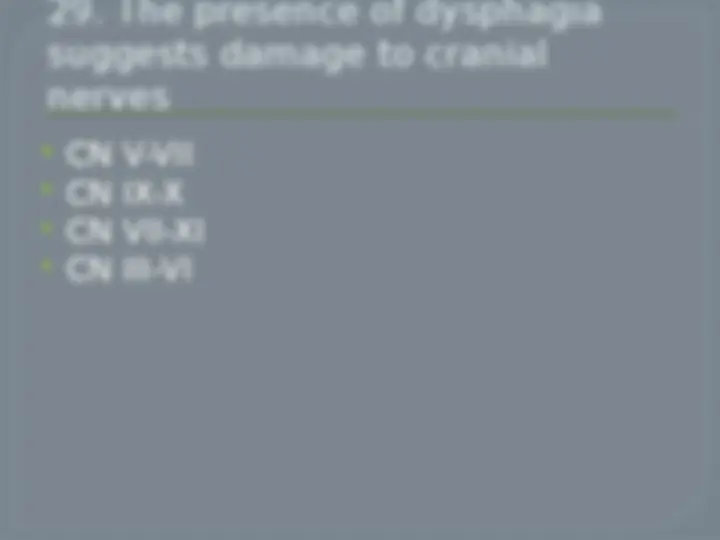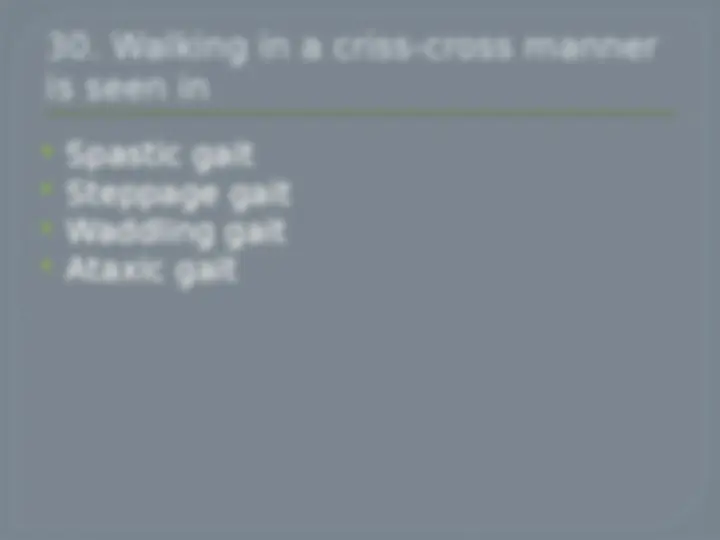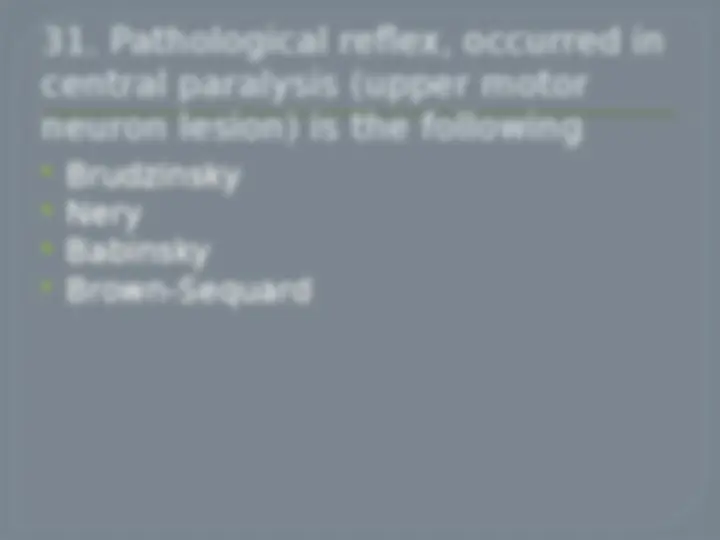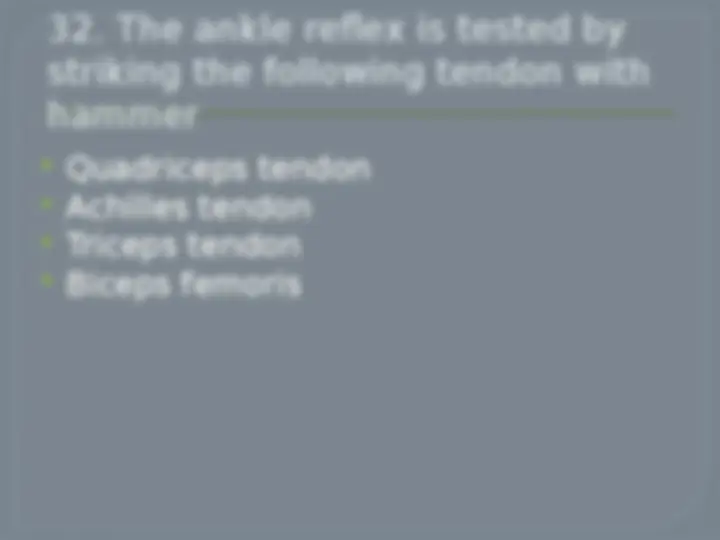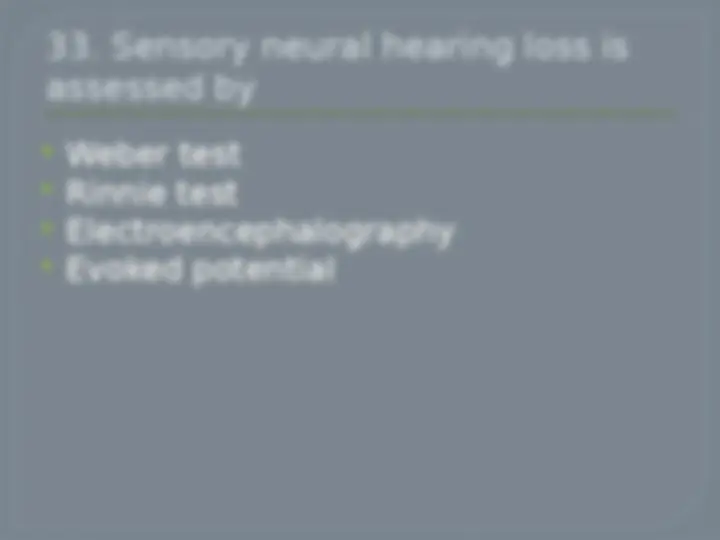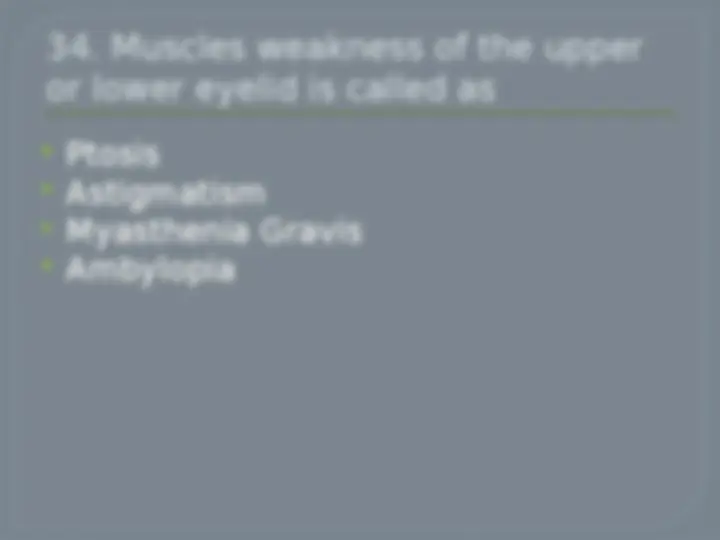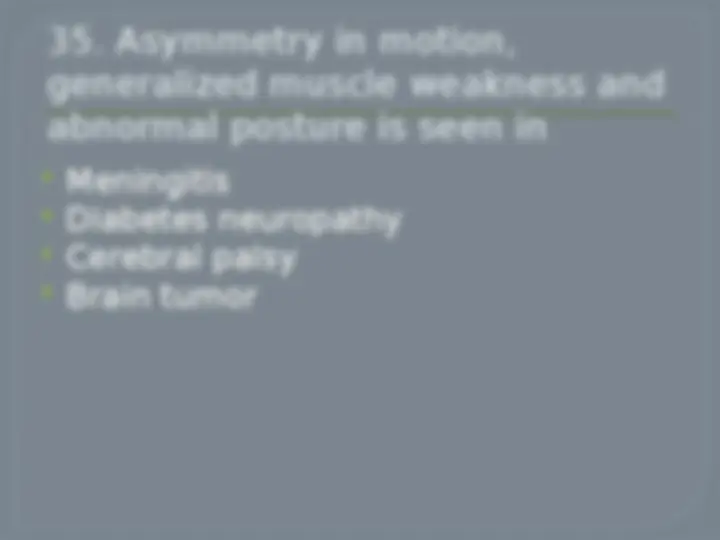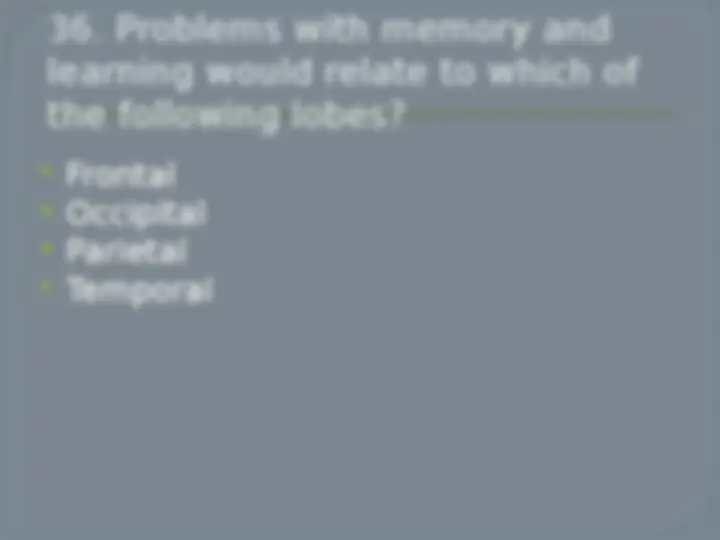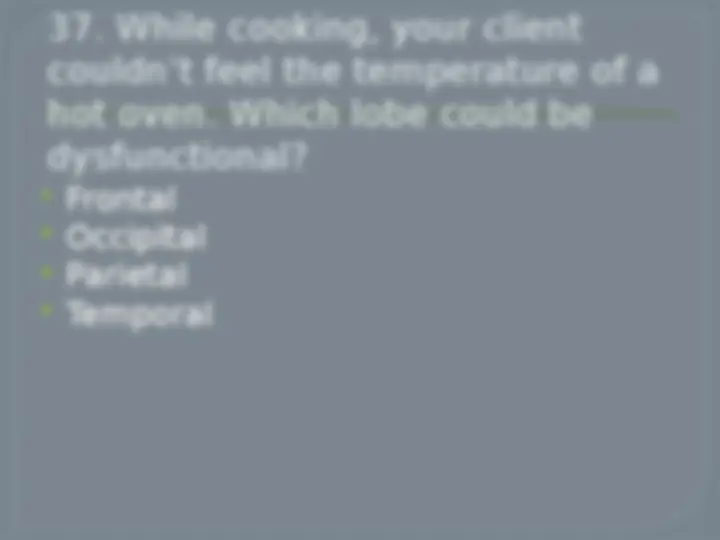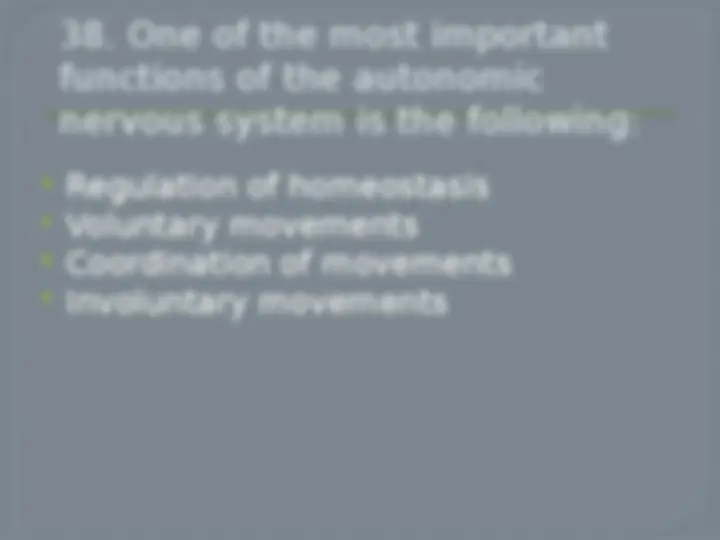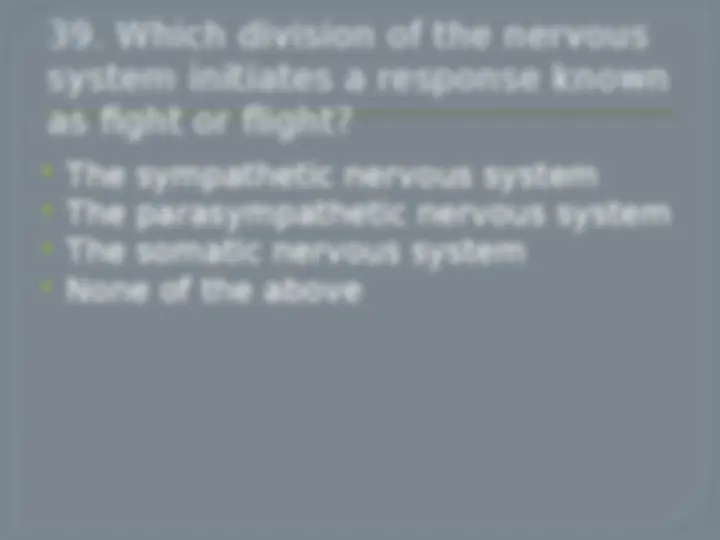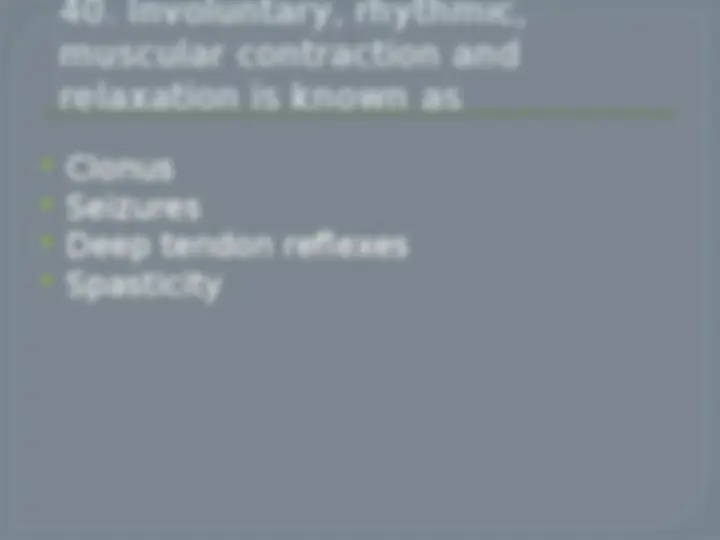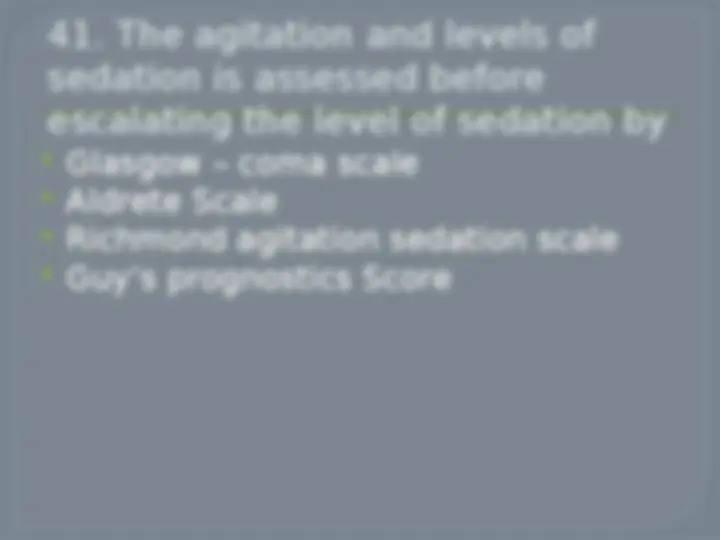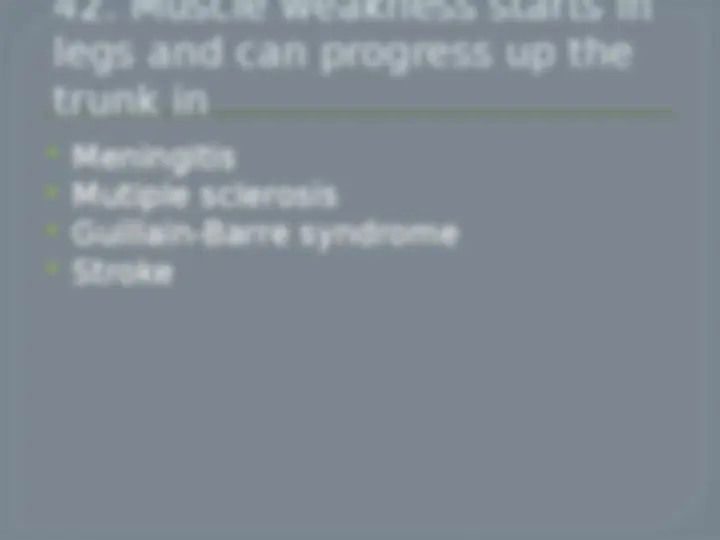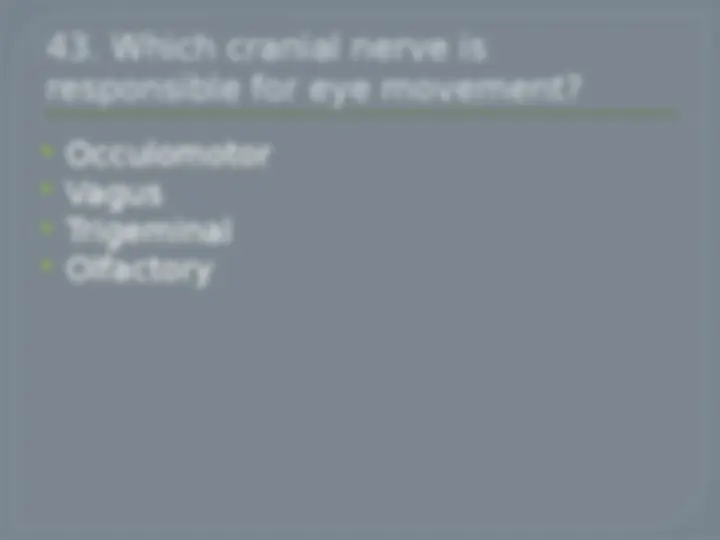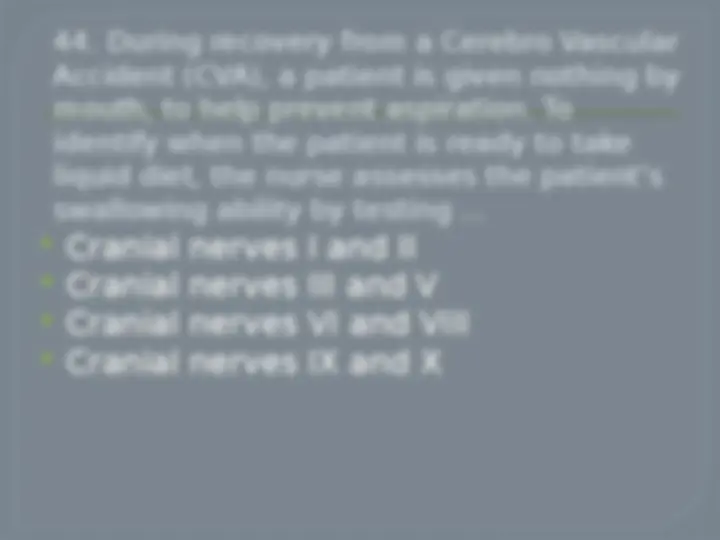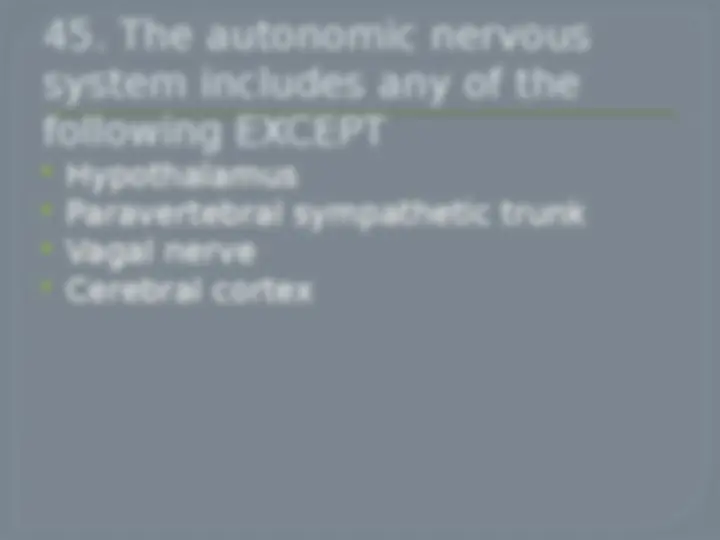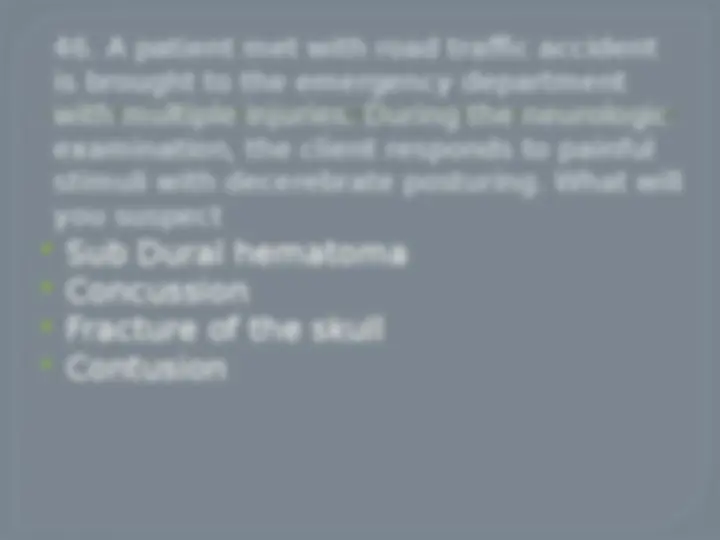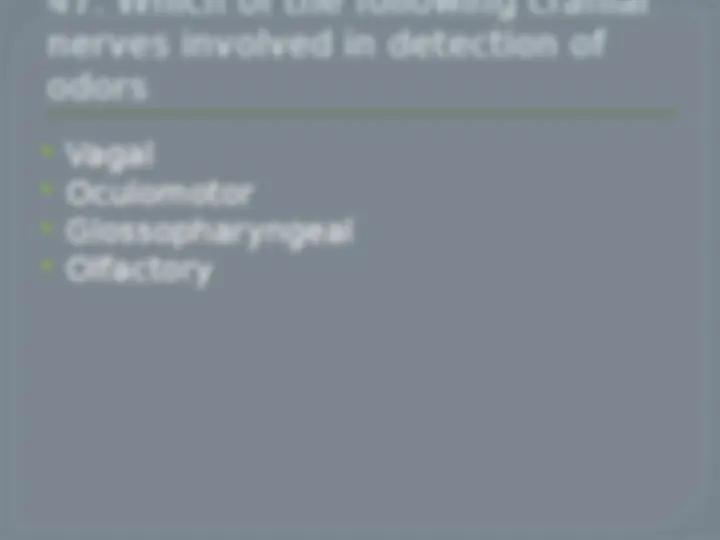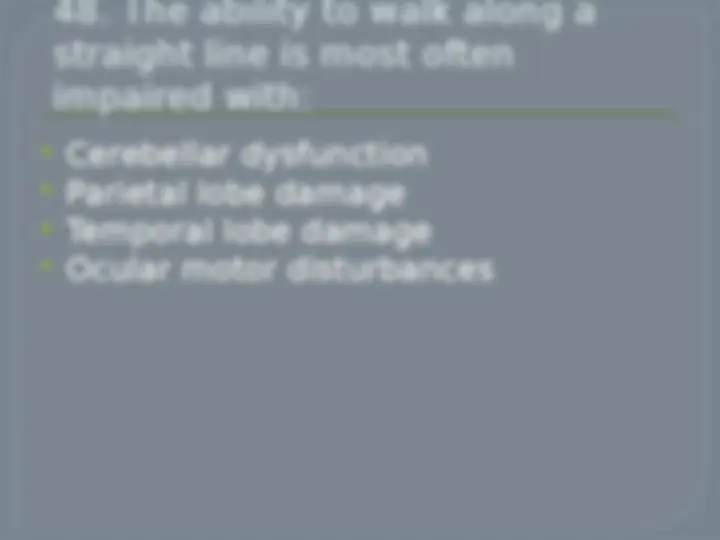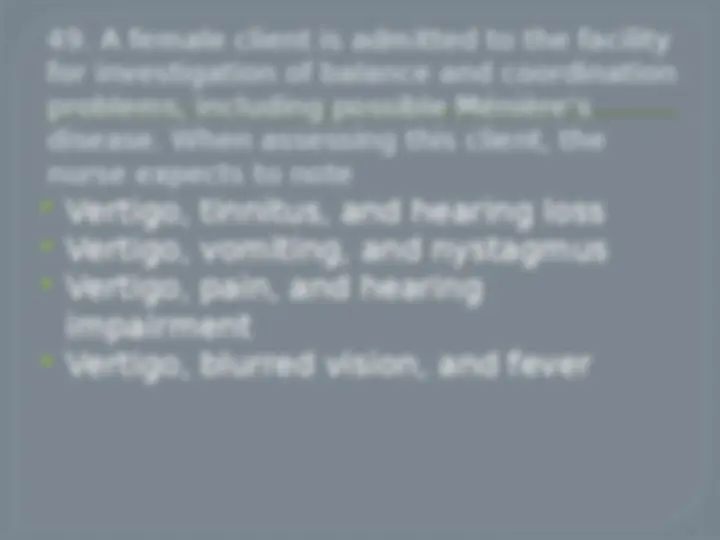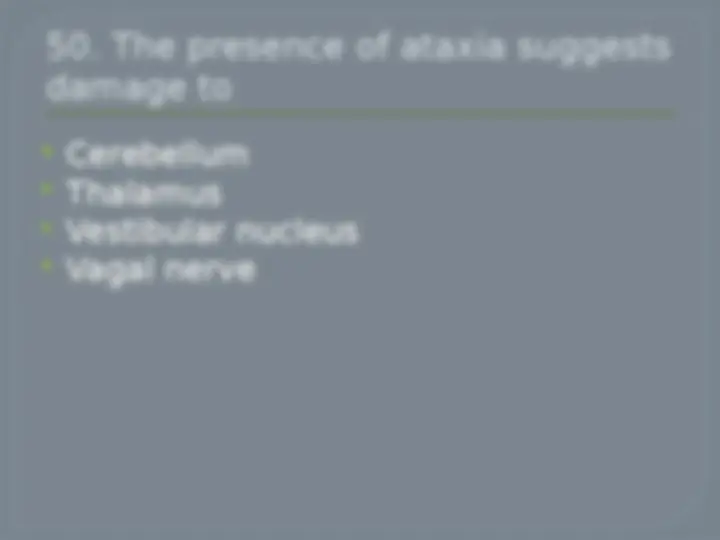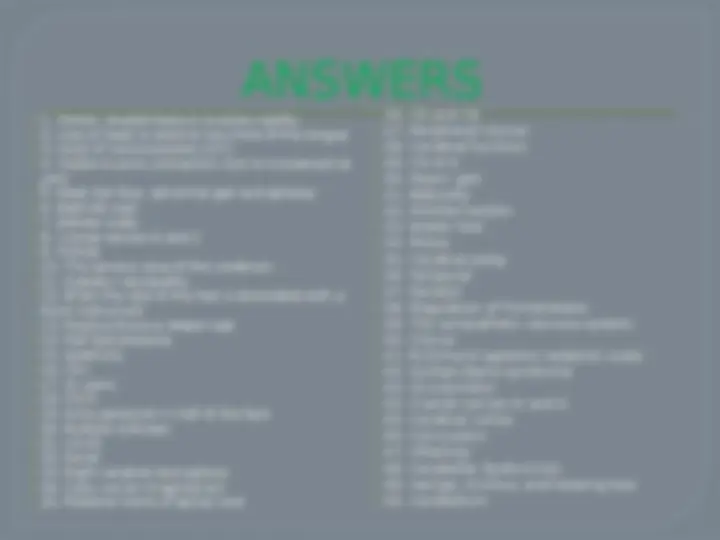Download Nursing quiz for Neurological assessment and more Exams Nursing in PDF only on Docsity!
NEUROLOGICAL
ASSESSMENT
1. Parkinsonism includes
combination of the following
Tremor, bradykinesia & muscles rigidity Paresis, anesthesia & muscles spasticity Chorea & muscles hypotonia Tremor, ataxia & muscles hypotonia
- Glasgow Coma Scale (GCS) is a measure of Level of consciousness (LOC) Memory Intra cranial pressure (ICP) Fluid volume
- Which of the following is the most appropriate description of a muscle power grade or strength of 3+? Muscle able to move joint against gravity with full resistance Visible muscle contraction, but no movement at joint Movement at the joint, but not against gravity Movement against gravity, but not against resistance
- Extension of big toe and fanning of four smaller toes is called as Homan sign Kernig’s sign Babinski sign Brudzinski sign
- The recovery of consciousness after anesthesia is measured by using Glasgow – coma scale Aldrete Scale Richmond agitation sedation scale Guy’s prognostics Score
9. The Broca’s area is located in the
lobe
Frontal Parietal Temporal Occipital
- Which area of the brain is responsible for the awareness of sensation? The cerebellum The sensory area of the cerebrum The primary motor region of the cerebrum The thalamus
- Plantar reflex is a reflex elicited When the sole of the foot is stimulated with a blunt instrument Dorsiflexion of the foot with knee hammer Extension of the foot with gentle stroke Gentle tapping of the great toe
- Affection of the cerebellar may produce any of the following EXCEPT Positive Romberg’s test Positive finger to nose test Positive heel to knee test Positive Rinne & Weber test
- The upper motor neuron impairment produces the following change of muscles tone flaccidity spasticity “cog wheel” rigidity Myoclonia
- The presence of Anosmia suggests damage to the following cranial nerve CN II CN I CN III CN V
- The presence of Ptosis suggests damage to cranial nerve CN IV CN V CN III CN VII
- Trigeminal nerve impairment produces the following symptoms Plegia in half of the face Ache paroxysm in half of the face Disturbance of swallowing Ache in half of the head

